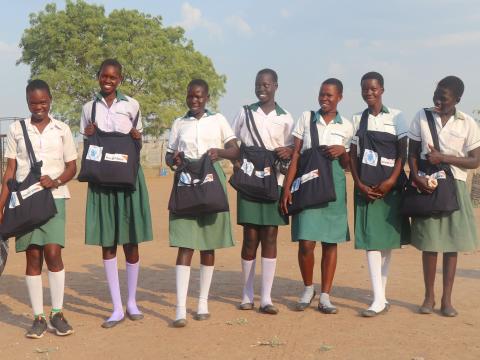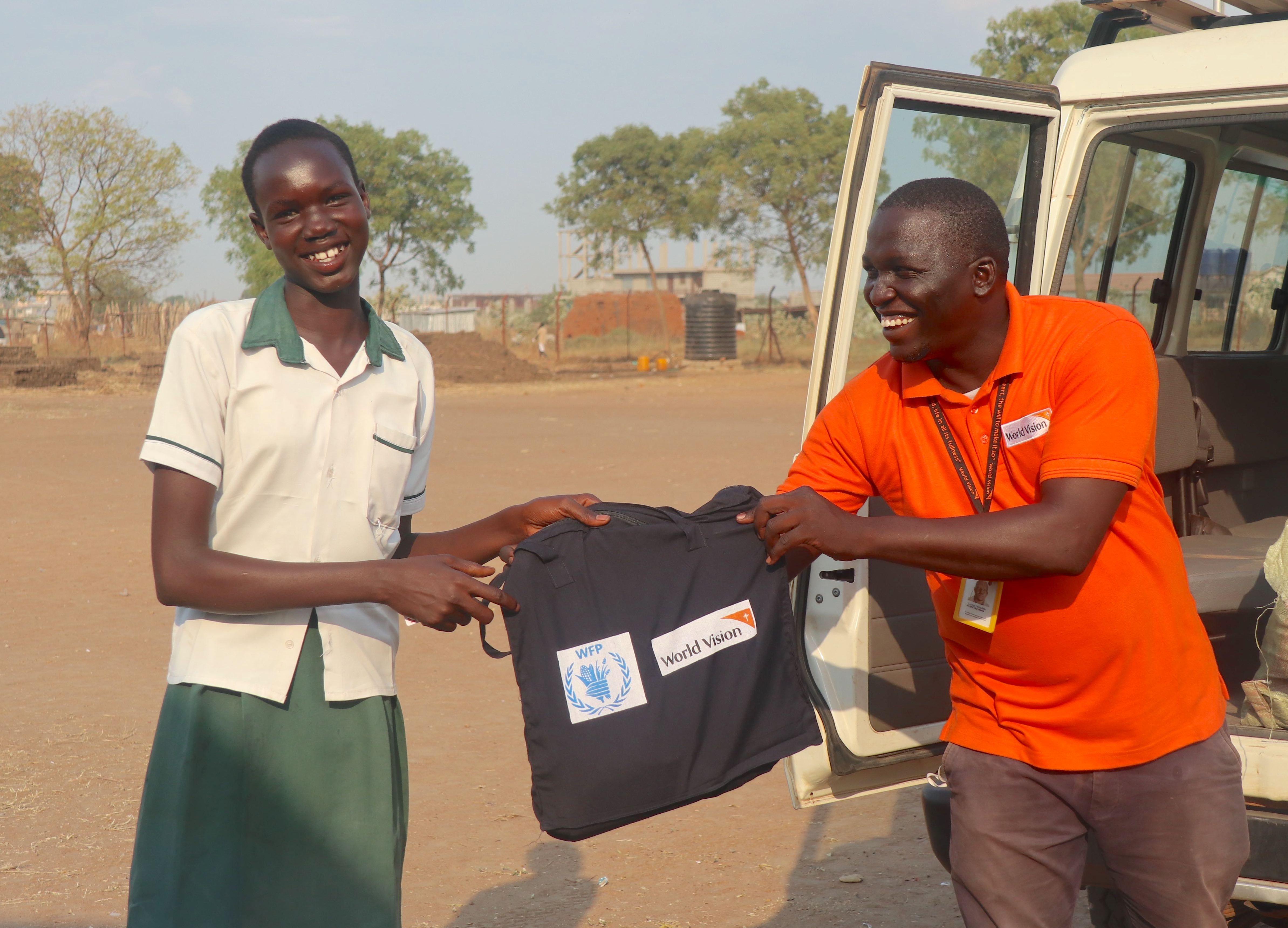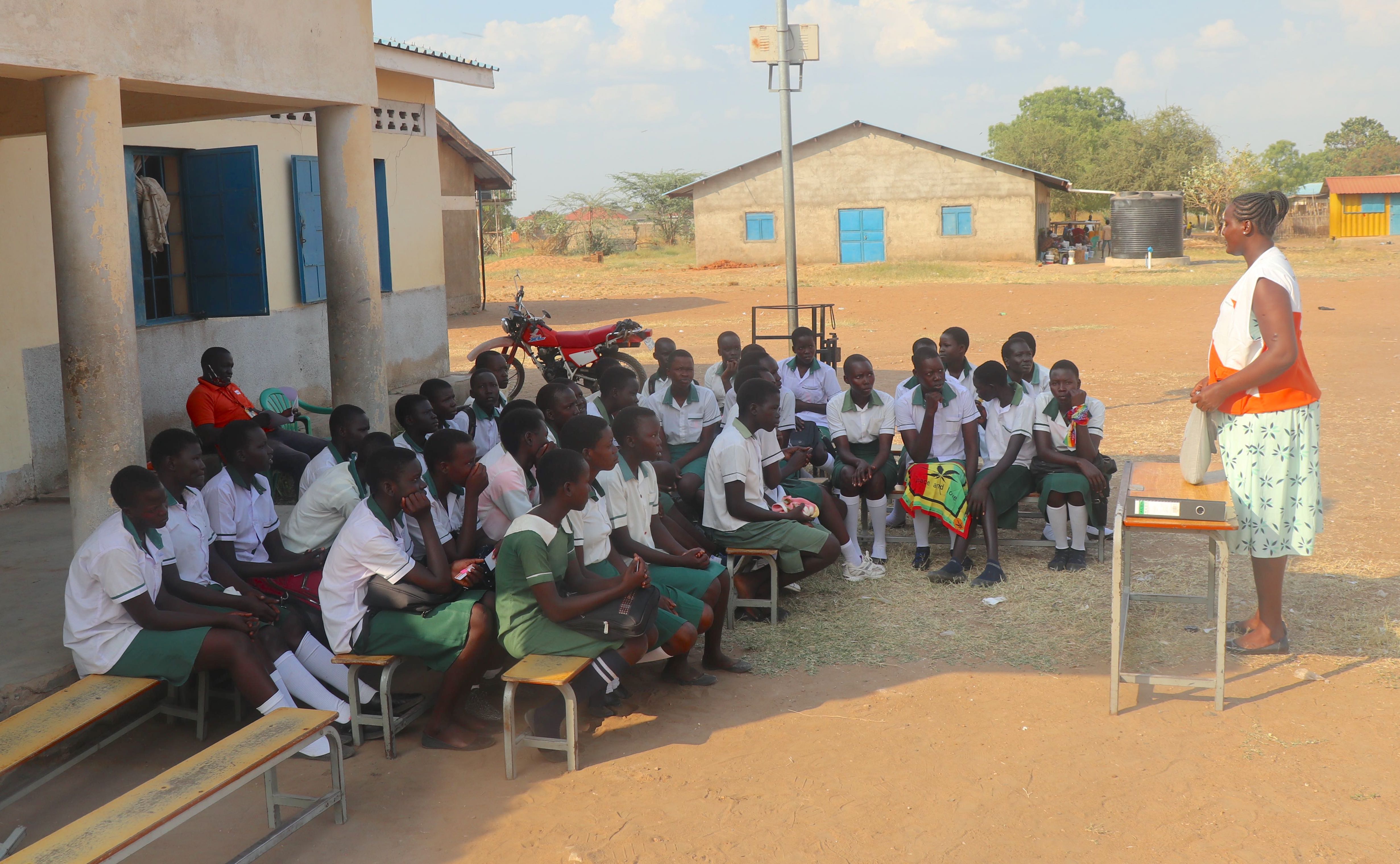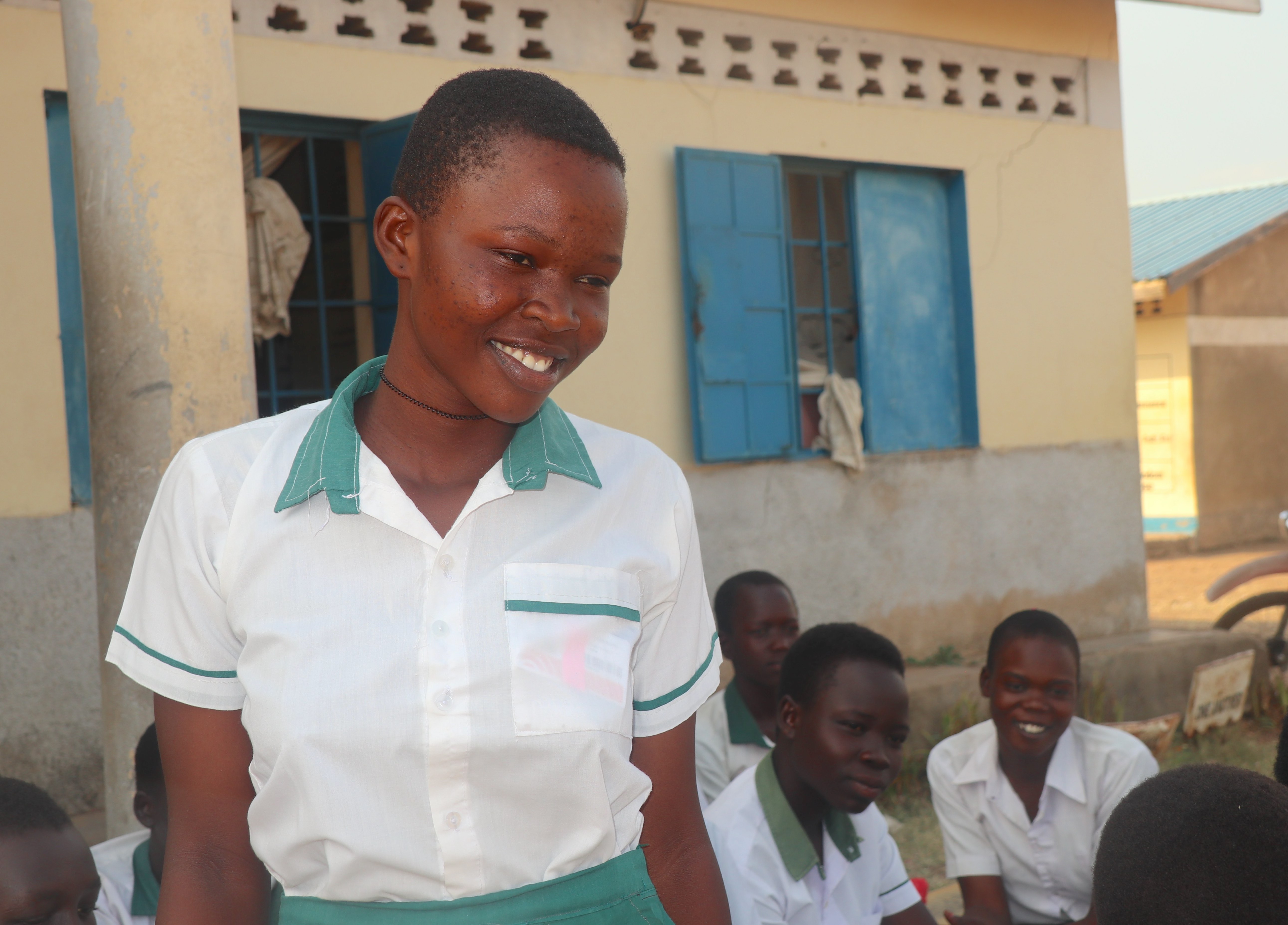WFP and World Vision help break stigma on menstrual period hindering girls’ education in South Sudan

Rhoda, 17, is a primary eight pupil in South Sudan’s capital Juba. She is one of thousands of girls living in an urban environment who has no access to hygiene supplies such as sanitary pads.
“My family needs to prioritize our other basic needs if we have the money than, as our aunt often told us, just to buy sanitary pads for us,” Rhoda shares.

Originally from Maridi County in Western Equatoria State, Rhoda and her family moved to the country’s capital Juba in search of better opportunities. Rhoda’s aunt, who owns a local restaurant, supports the whole family.
“I would be in secondary school by now if not for the years I stayed home not being able to afford the school fees. But I am thankful that despite her too many responsibilities, my aunt continue her support,” she says.

South Sudan’s civil war, which erupted in 2013, has compounded the already tough situation of girls and women in urban centers. It also deprived millions of children of their education. A UN report states that an estimated two million school-age children are out of school.
Rhoda and her younger sister Sarah, 15, have experienced staying home during their period. “Missing our lessons every month was normal for us. There was a day when I had to use a piece of cloth so as to sit for exams. It is really tough”, she sadly adds.
Missing our lessons every month was normal for us. There was a day when I had to use a piece of cloth so as to sit for exams.
World Vision and the World Food Programme (WFP) distributed sanitary pads to 28 schools in Juba’s urban areas, targeting over 2,720 school-going girls so they will not miss school every month.
The reusable pads are in packs of three and include two pairs of underwear and a plastic pouch to store them. Made from absorbent cotton, it has a plastic layer, can be washed repeatedly and used for several months.
Emmanuel Ondoga, Food and Cash Assistance Coordinator says, “There is need for strong political will to develop better menstrual hygiene management that address the girls’ issues in schools and public spaces.”

Ondoga said that culturally sensitive programs on menstrual hygiene will help to bridge the gap between the adolescents’ need to learn and parents’ or guardians’ lack of knowledge of sexual and reproductive issues. “This will improve the social, emotional, educational, and physical development of South Sudanese girls.”
“Such programs assist in educating community people on how to respect and accommodate females on a period, especially male teachers and adolescent boys in school“, he adds.
Rhoda and Sarah say, “Girls in this country need all the support they can get to stay in school. We are grateful to World Vision for making our life easy with the provision of sanitary pads and we hope they continue to support more girls across the country.”

Viatore Joseph Gudele, her school's head teacher shares, “There are actually more girls than boys in school, 330 out of 557 pupils. I realized now that they miss their classes when on their period. Parents undermine the importance of pads because they can barely afford two meals a day.”
Ondoga further adds, “People value cattle so much they can give away their daughters even at a young age for dowry. Most of them do not care to buy pads to keep them in school.”
“There is hope for the future. It is a collective responsibility to respond to this menstrual health issue in South Sudan. More work needs to be done to provide menstrual supply to school girls and women in order to reduce, if not completely remove, the social stigma surrounding menstruation”, he concludes.

Story and photos by Scovia Faida Charles Duku, Communications Coordinator